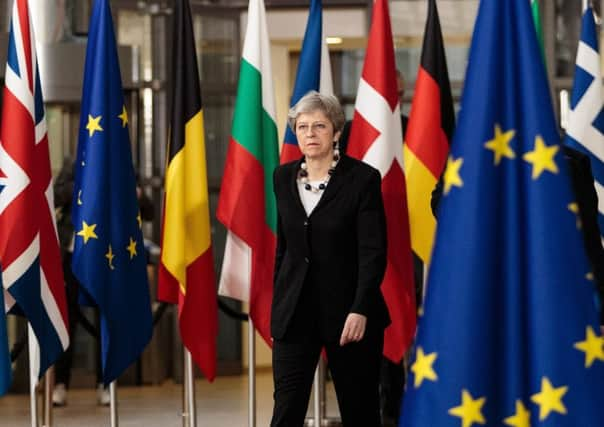One year till Brexit: Few minds changed despite grim outlook


Sir John Curtice, who correctly predicted the Conservatives would lose their majority in the 2017 general election, said there is “far from sufficient evidence” that a second referendum would reverse the result of the original vote.
Analysis of polling since the 2016 ballot shows “increased pessimism” about the likely outcome of the withdrawal talks - but little shift in voter intentions, according to the University of Strathclyde academic.
Advertisement
Hide AdAdvertisement
Hide AdIn a report published by The UK in a Changing Europe, which is funded by the Economic and Social Research Council (ESRC), to mark one year to exit day, he said the country is still “deeply divided”.
In February 2017, 33% felt that the UK would get a good deal compared to 37% who did not - but by end of the year that had switched to just 19% to 52%, according to research agency NatCen.
“Has this apparently rather more doubtful mood served to reduce support for Brexit?” Sir John wrote.
“There is some sign of movement, but not enough to suggest that the country is anything other than more or less evenly divided down the middle on the subject, much as it was on referendum day itself.”
Sir John said there have been relatively few polls of how people might vote in a second referendum and those that had been carried out were close and come with a “health warning”.
He added: “The current poll estimate that 52% might now vote for Remain is far from sufficient evidence to be sure that a second ballot would see a reversal of the original result.
“This becomes even more apparent when we identify what appears to account for the slight shift registered by the polls.
“It is not based on any marked tendency amongst those that voted Leave to say that they would now vote Remain.”
Advertisement
Hide AdAdvertisement
Hide AdHe added: “The principal reason why polls now show a small lead for Remain is that, while around one in five (21%) of those who did not vote in 2016 say they would now vote Leave, around a half (51%) state that they would now vote Remain.
“In short, at present at least, the outcome of any second referendum looks as though it could well depend on who did and did not turn out to vote on the day.”
